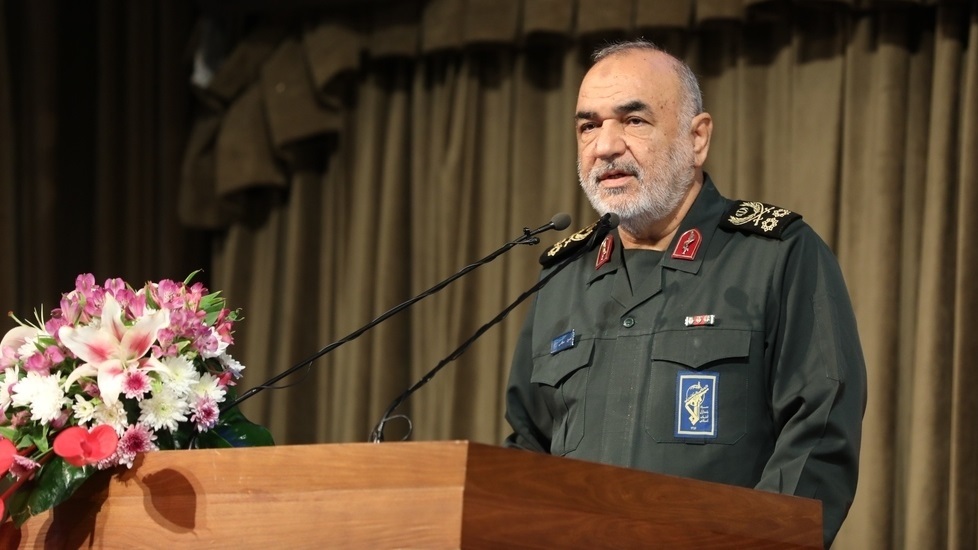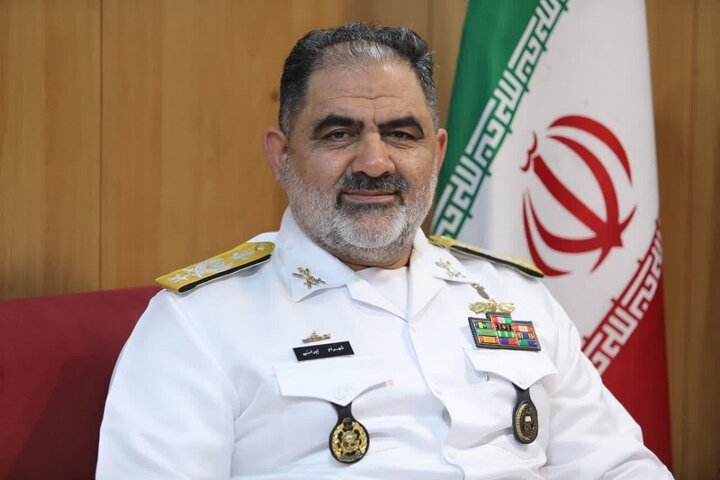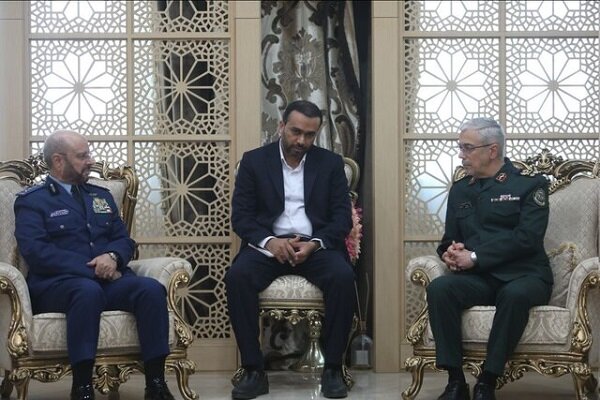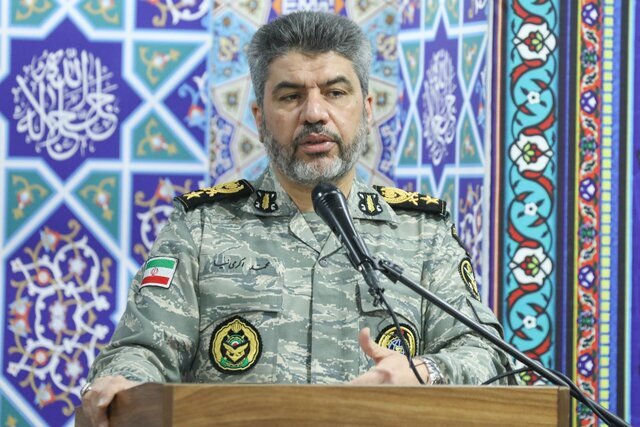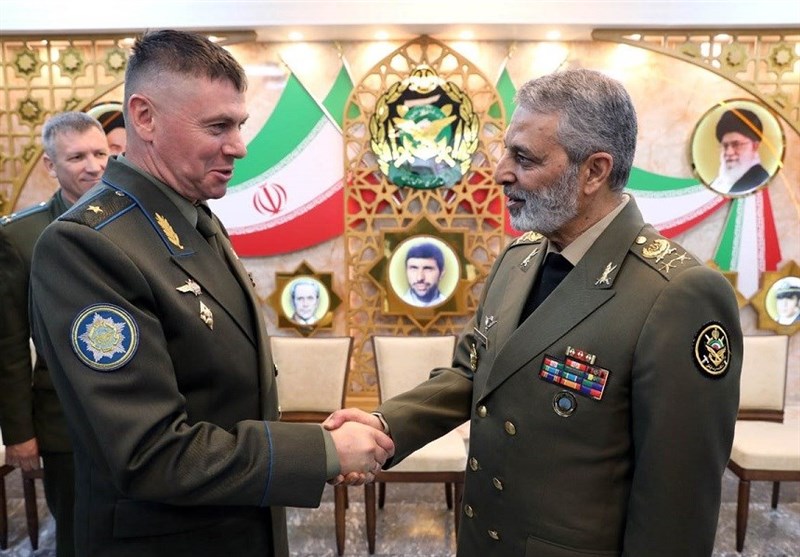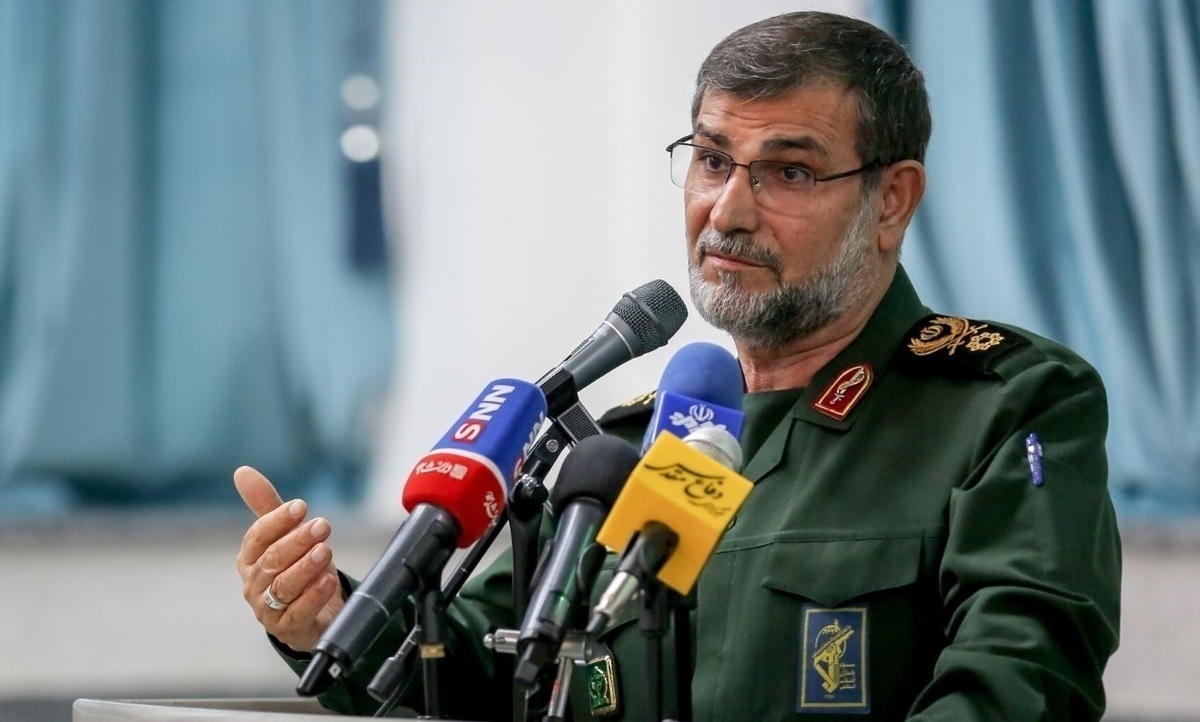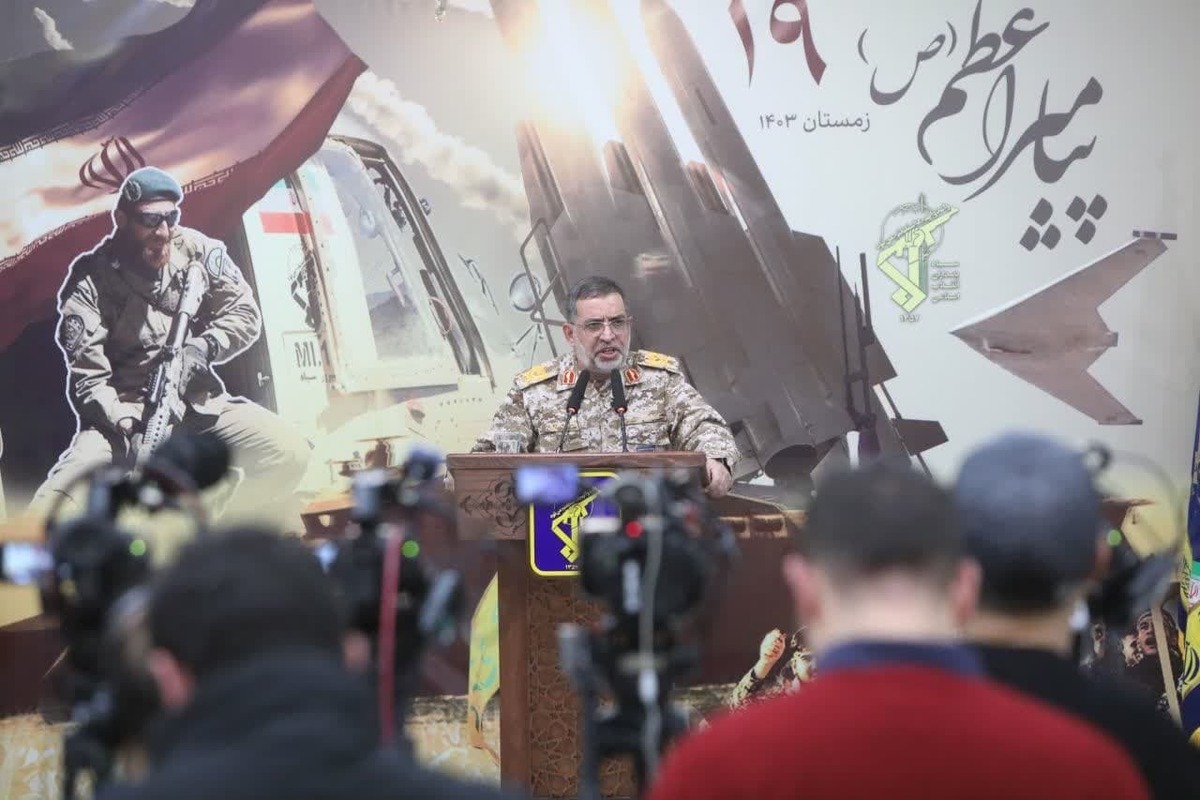
“IRGC Brigadier General Ali Mohammad Naeini speaking at an armed forces presser for the Eghtedar drill,” Islamic Republic of Iran Broadcasting (state broadcaster), 6 January 2025.
“We tell the enemy that we are always ready to act at the moment, we are not complacent and procrastinators. When the command is given, we will demonstrate our power as before and change the enemy’s cognition and calculations once again.”
Despite the severe weakening of the Iran-led Resistance Axis[i] in recent months, Tehran continues to seek to show itself projecting power. According to state broadcaster Islamic Republic of Iran Broadcasting, on 6 January, Islamic Revolutionary Guard Corps (IRGC) spokesman and deputy of public relations Brigadier General Ali Mohammad Naeini said, “We tell the enemy that we are always ready to act at the moment,” adding, “When the command is given, we will demonstrate our power as before and change the enemy’s cognition and calculations once again.” The comments were made at an armed forces presser for the Eghtedar drill[ii] on the fifth anniversary of the U.S. assassination of IRGC Quds Force Commander Qasem Soleimani.
Naeini emphasized that Iran’s enemies—the United States and Israel—have “a false enthusiasm and misconception” of recent regional developments. Particularly, he noted their use of “psychological and cognitive warfare” to hide the truth, which, in Tehran’s mind, is that it continues to be in a position of strength. Naeini appeared to be referring to the major setbacks experienced by Hezbollah in Lebanon and Hamas and Palestinian Islamic Jihad in the Gaza Strip, as well as the ouster of the Bashar al-Assad regime in Syria. Despite these major blows to the Resistance Axis, the IRGC spokesman argued, “We never had an intelligence defeat from the enemy. It’s the enemy that always engages with cognitive warfare to make up for its intelligence and military defeats.”
Naeini, presumably taking note that morale was low after Assad’s downfall, emphasized that “Today’s generation of the armed forces is more revolutionary and anti-American than the previous generations” and that it will continue to sacrifice itself for the “Iranian people” and the “oppressed worldwide.” Par for the course of commentary coming out of Tehran for the past four decades, the United States and Israel are to blame for the breakdown of the Resistance Axis.
Sources:
“برای امنیت ایران هر اقدام نظامی متعارفی انجام میدهی (For Iran’s security any military action will be done),” Islamic Republic of Iran Broadcasting (state broadcaster), 6 January 2025. https://www.iribnews.ir/00IZ2n.
According to IRIB, the full statement of deputy of public relations and spokesman [of the Islamic Revolutionary Guard Corps (IRGC) Brigadier General Ali Mohammad Naeini]…
We also commemorate the fifth anniversary of the martyrdom of IRGC Commander Qasem Soleimani and his comrades…
In the past few weeks, due to new developments in the region, a false enthusiasm and misconception have formed in the enemy (the United States and Israel), and the enemy has tried with cognitive warfare to portray the ongoing developments as a weakening of Iran’s power. We know the reality is something else.
The Islamic Republic of Iran has long been fully prepared for large, complex, and heavy battles on any scale. We trust in the infinite divine power and our endogenous strength, especially the people-based deterrent power…
The dear nation of Iran should know that the enemy has never had an advantage over us in any battle. We never had an intelligence defeat from the enemy. It’s the enemy that always engages with cognitive warfare to make up for its intelligence and military defeats against the Islamic Republic of Iran to weaken its national spirit.
We are in an environment of psychological and cognitive warfare.
Every day, the enemy creates issues and casts doubt to influence national will and spirit. We tell the enemy that we are always ready to act at the moment, we are not complacent and procrastinators. When the command is given, we will demonstrate our power as before and change the enemy’s cognition and calculations once again…
Supporting the broad resistance front and developing global basij cores are key principles of the Islamic Republic of Iran and is a serious agenda for the IRGC in realizing Islamic civilization. The enemy’s military threats have increased the convergence of society and made our armed forces more synergic and integrated. The IRGC moves to strengthen the foundations of security and national power by solidifying its combined power infrastructure with the people and for the people.
Today’s generation of the armed forces is more revolutionary and anti-American than the previous generations. Unity and empathy in the IRGC have always been a thorn in the enemy’s side. The culture of obedience in the IRGC is based on Quranic culture and the path of leadership. The IRGC considers itself sacrificing its life for the Iranian people and the oppressed worldwide, and the power exercises conducted by the IRGC show the determination and readiness of Islam’s guardians to defend Iran’s sovereignty and ensure the peace and security of the Iranian people.
Notes:
[i] The Axis of Resistance is a self-described informal coalition of Iranian supported militias and political organizations across the Middle East. The Axis includes Hamas in Gaza, the Hezbollah movement in Lebanon; the Houthi movement in Yemen; and various Shi’ite armed groups in Iraq and Syria. See: “What is Iran’s ‘Axis of Resistance’?,” Reuters (global news service), 13 April 2024. https://www.reuters.com/world/middle-east/what-is-irans-axis-resistance-which-groups-are-involved-2024-01-29/
[ii] The Eqtedar drill is part of a larger joint air defense exercise. See: “Iran Launches ‘Eqtedar 1403’ (Great Prophet 19) Drills Near Natanz Nuclear Facility,” Islamic World News, 7 January 2025. https://english.iswnews.com/37209/iran-launches-eqtedar-1403-great-prophet-19-drills-near-natanz-nuclear-facility/
Image Information:
Image: “IRGC Brigadier General Ali Mohammad Naeini speaking at an armed forces presser for the Eghtedar drill,” Islamic Republic of Iran Broadcasting (state broadcaster), 6 January 2025.
Source: https://www.iribnews.ir/00IZ2n
Attribution: CCA-SA 4.0 Intl

